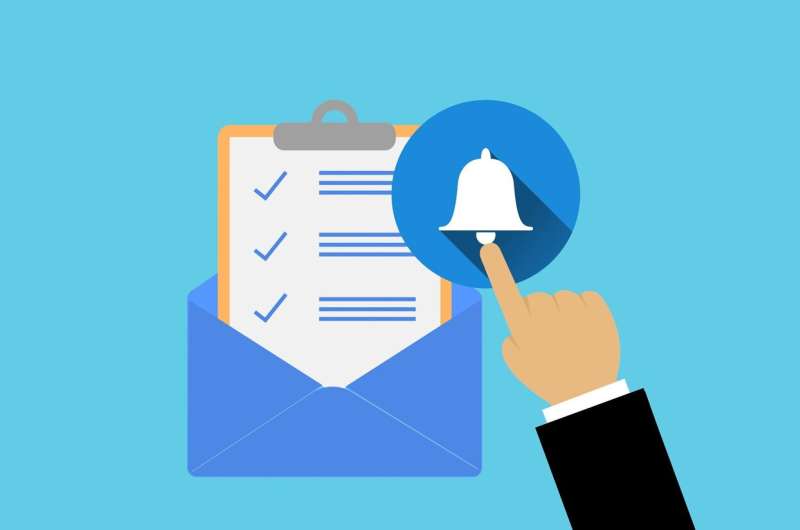
Text messages, app alerts and emails—so-called “digital nudges”—are effective at pushing us to do things, even exercise. New University of Minnesota research shows these actions used by corporate wellness programs lead to increased exercise among participants.
A majority of large employers offer wellness programs to encourage healthy, active lifestyles among their employees. However, these programs often face low participation. Carlson School of Management Professors Shawn Curley and De Liu, two of the study’s co-authors, say nudges can be a powerful tool to change that. But until now, there was little evidence of how effective nudges could be in the long term.
“The challenge with exercise is there are a lot of upfront costs, like investing time to go to the gym, but the benefits, like losing weight, are long-term,” said Liu. “A nudge can help keep people motivated.”
For the study, forthcoming in the Journal of Association of Information Systems, the researchers analyzed how nudges impacted reported physical activity in a Midwestern corporate wellness program. To encourage participation, the program offered weekly cash incentives and used two types of digital nudges: personalized motivational text messages and “kudos,” a form of light social support similar to Facebook likes. After reviewing nearly four years of data, the researchers determined:
- Both motivational messages and “kudos” led to increases in self-reported exercise.
- Motivational messages were most effective among users who had low physical activity.
- The impact of motivational messages increased over time.
- The effect of “kudos” didn’t last long term.
“Since the financial reward was always in effect throughout the program, the results show us the benefits from the nudges go beyond what cash incentives can provide,” said Curley. “Adopting nudges into an existing platform can be an easy, but also effective and low-cost, tweak to increase participation.”
Since different types of nudges resonate with different users, the study suggests developing engagement strategies based on activity levels. An example could be sending motivational text messages to those who are considering starting an exercise routine. Of note, the study found motivational messaging required repetition, as the users did not always respond initially, but did so after increased exposure.
The global corporate wellness market is a booming industry expected to reach a $90.4 billion valuation by 2026, according to Research and Markets. As the growth continues, the researchers say the key will be staying connected to the users.
Source: Read Full Article
